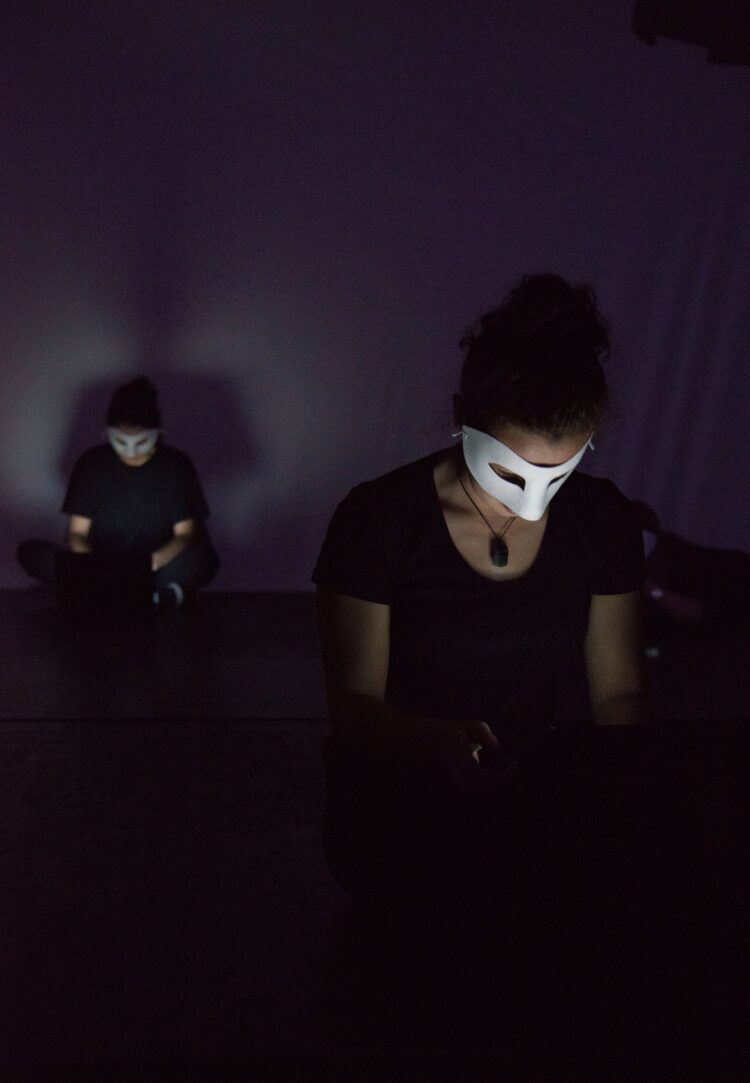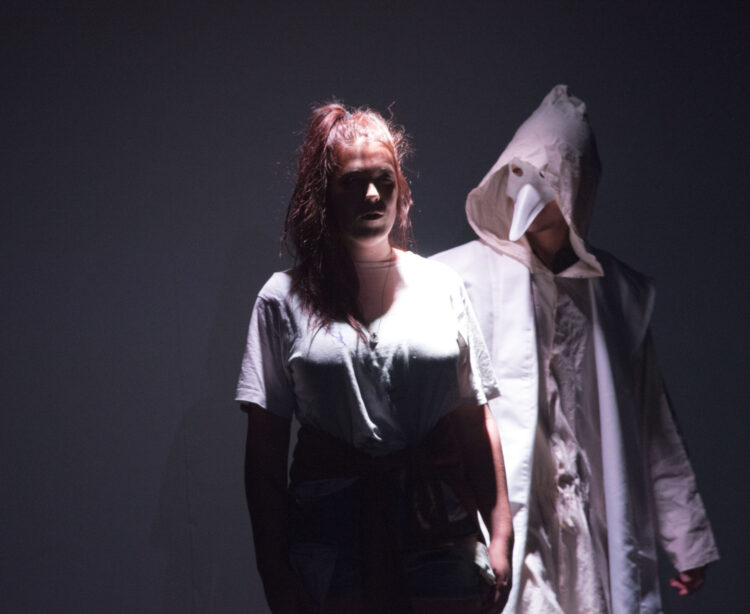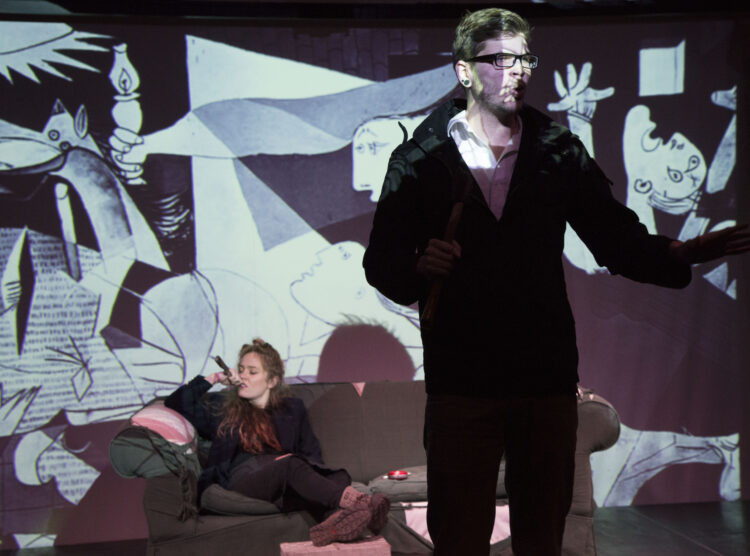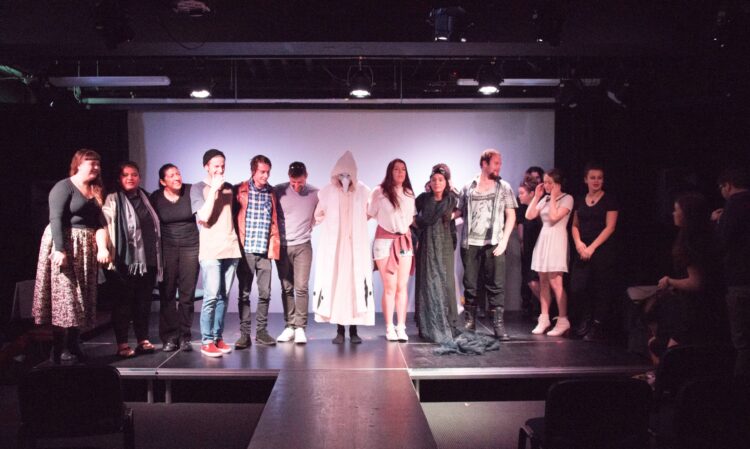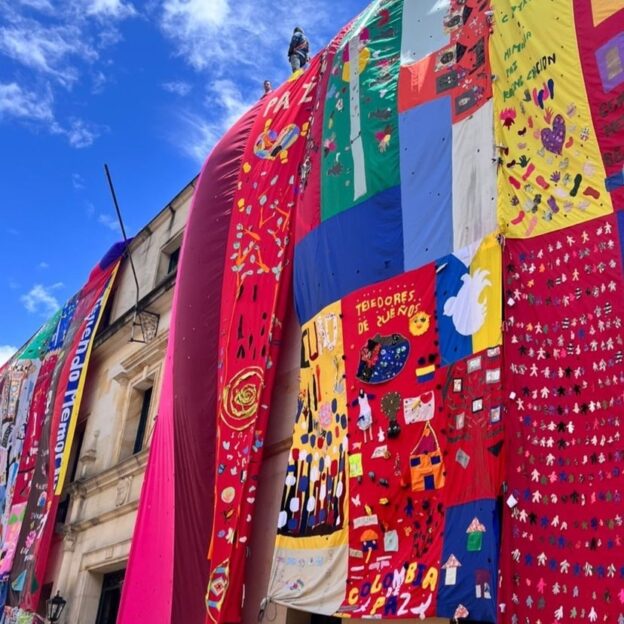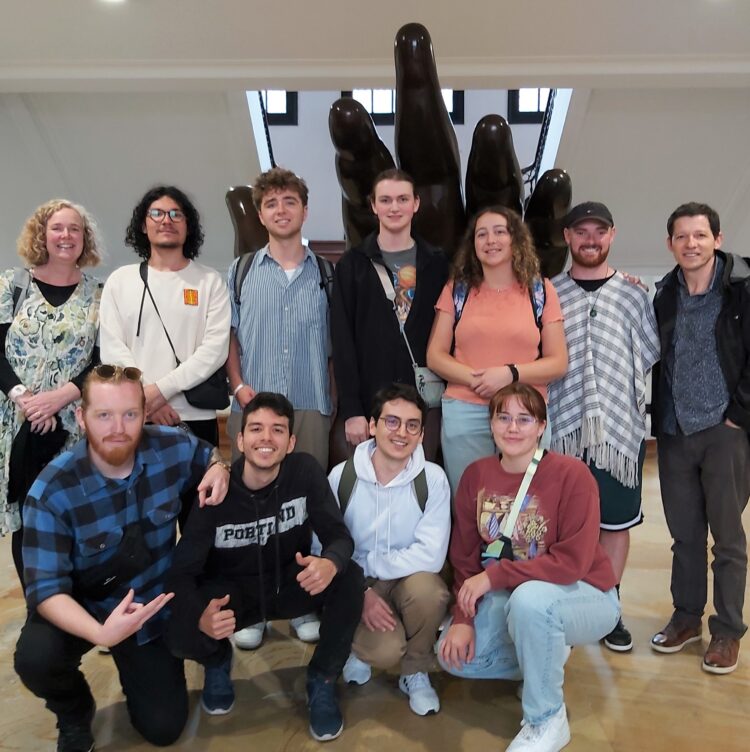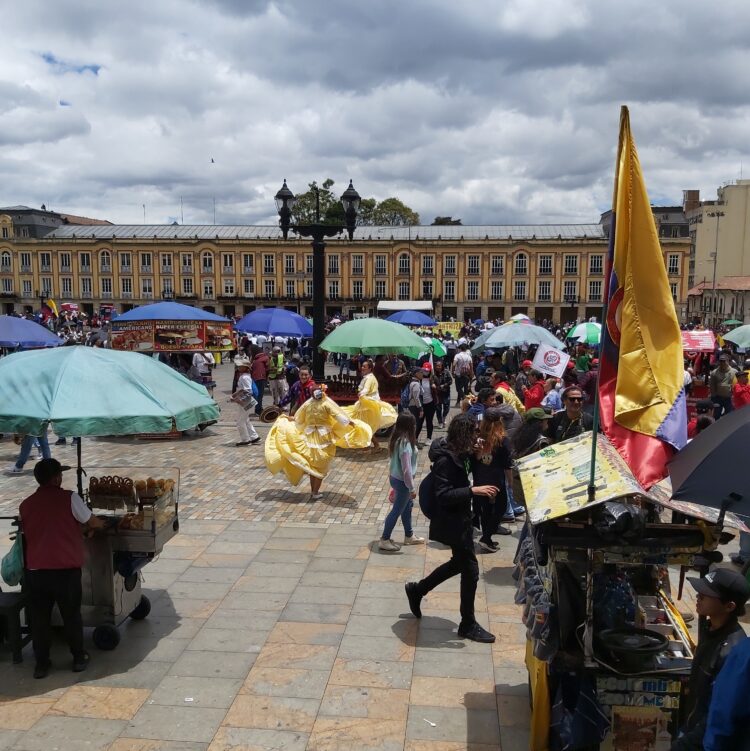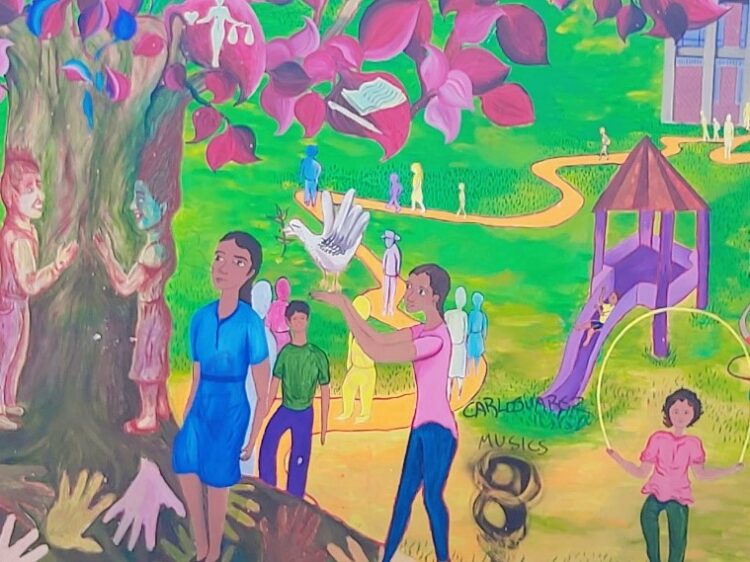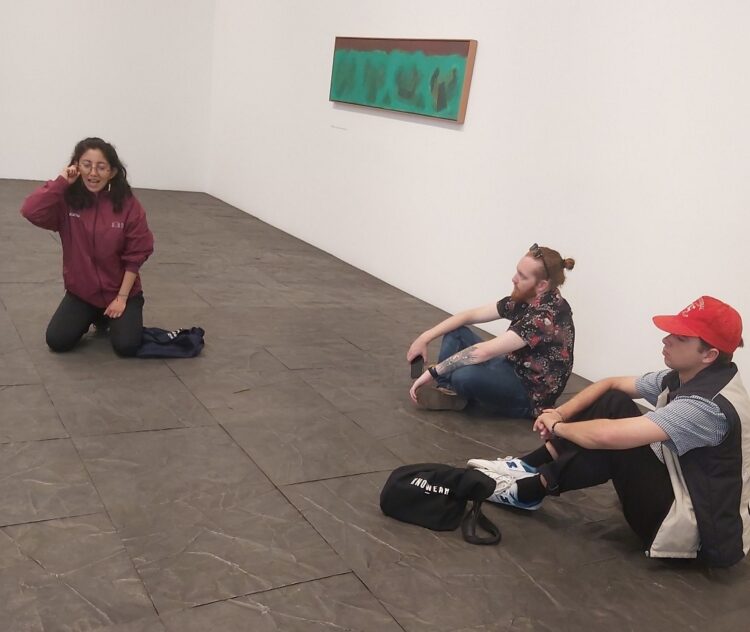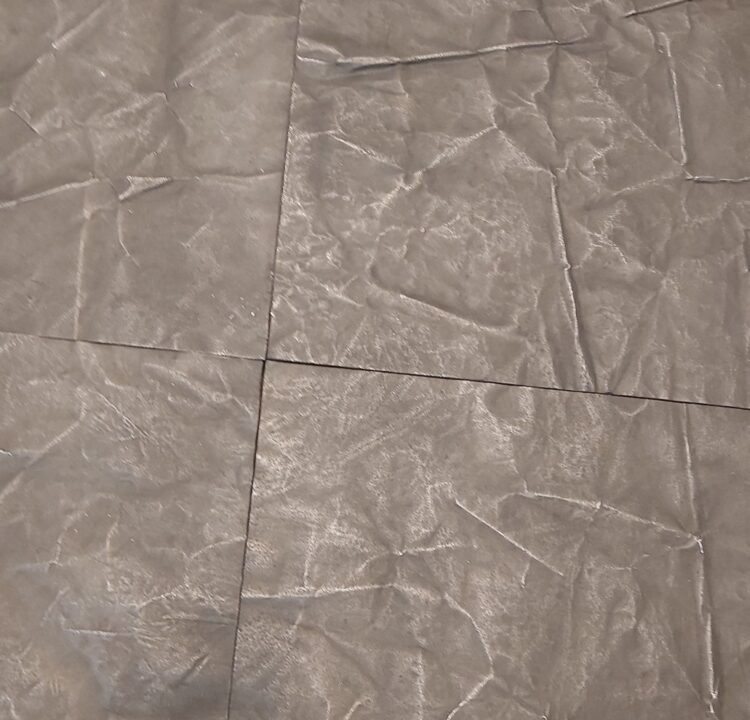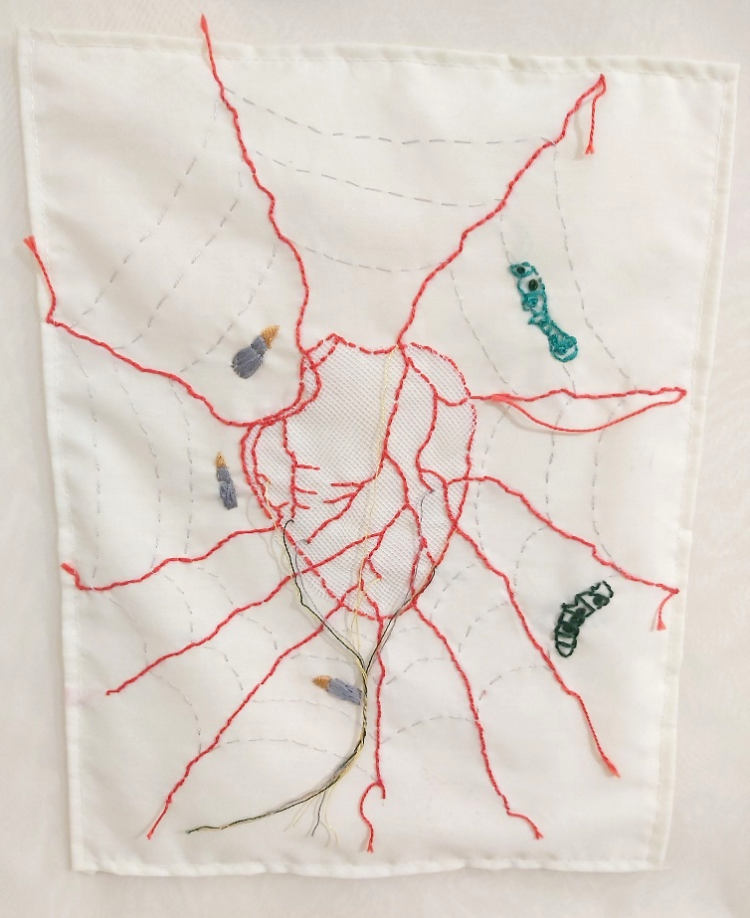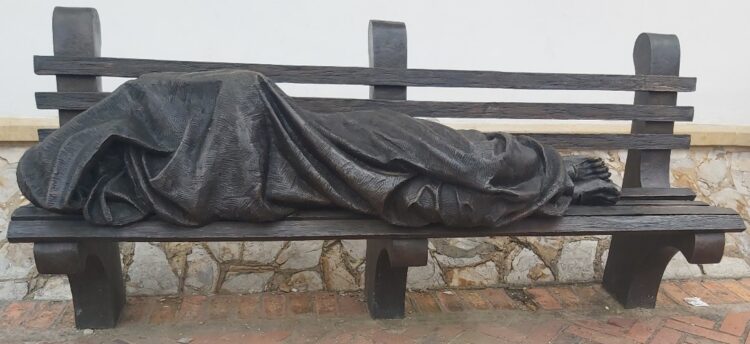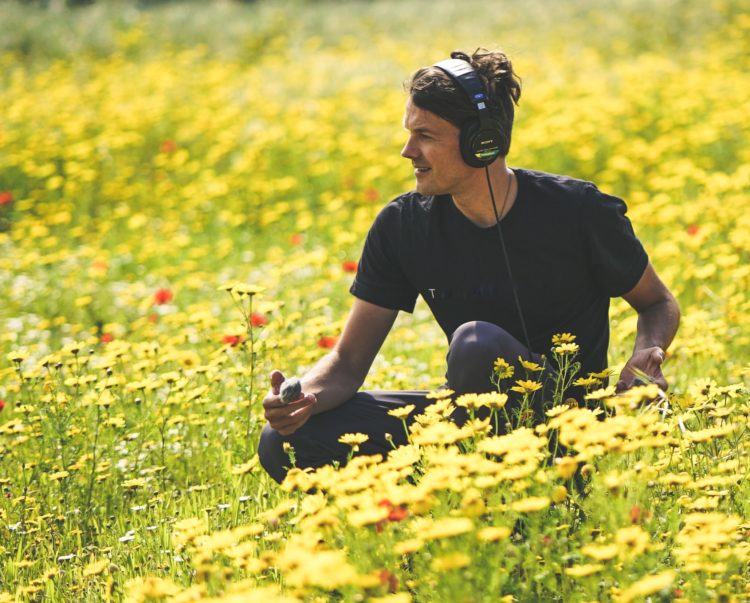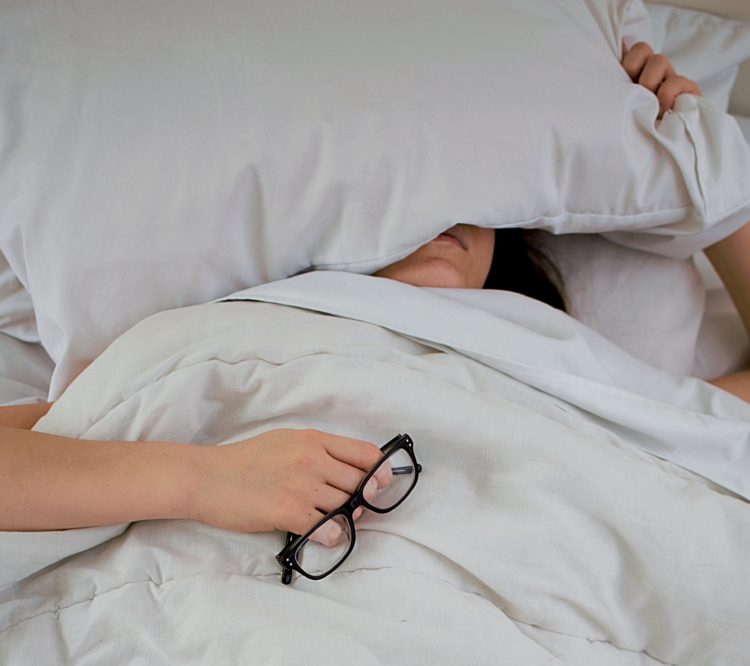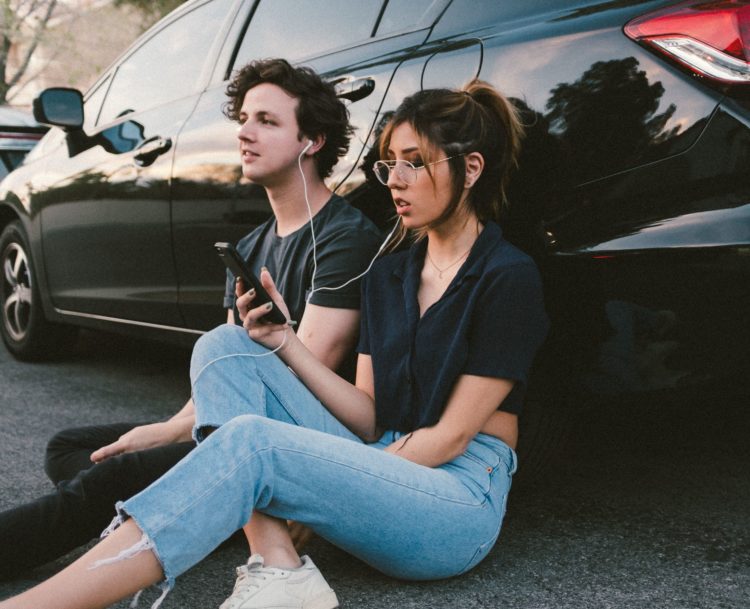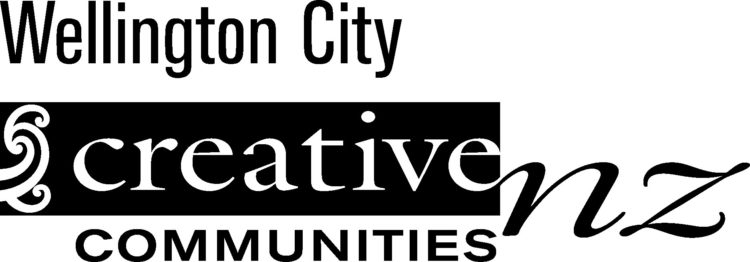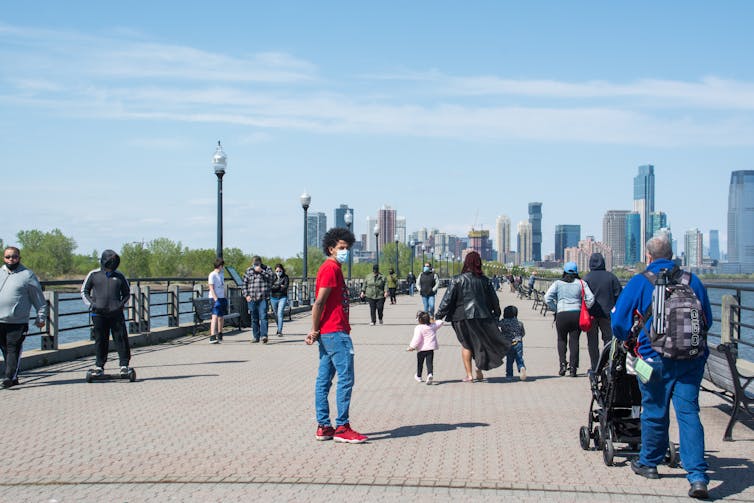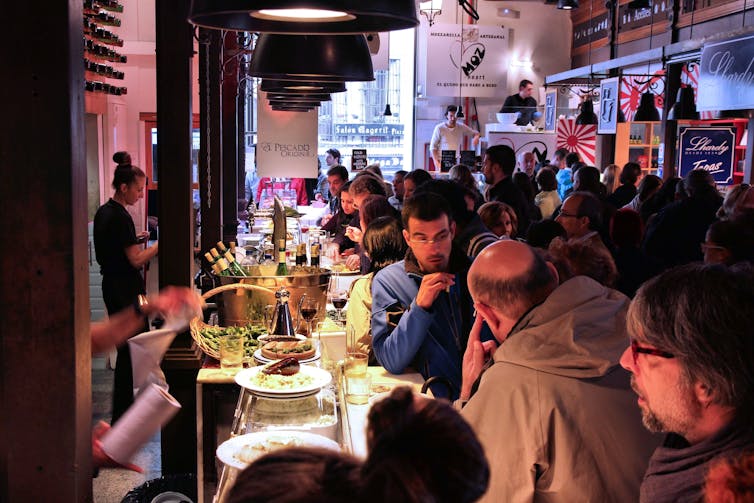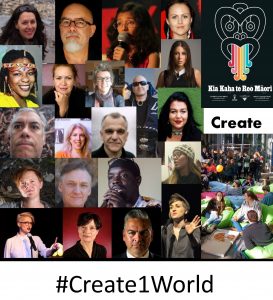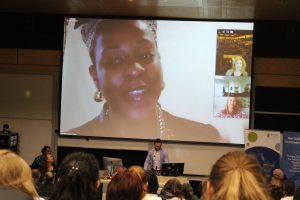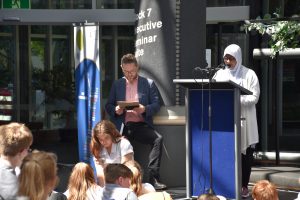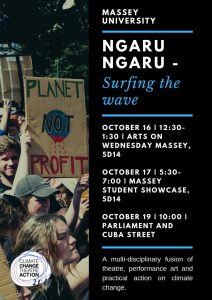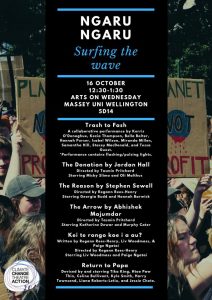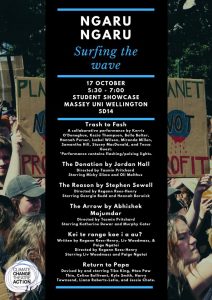For those coming to our Wellington Create1World Creative Activism and Global Citizenship Youth Conference on Thursday November 14 and wanting easily accessible online information during the day, here is a scrollable single page html plain-text-only version of the programme. (We are a paperless event.) Or, you can download the PDF version of this programme with nice pictures and logos in it, here: PDF Create1World 2019 – Wellington Programme
We look forward to welcoming you!
Contents
Welcome 2
Campus Map 3
Menu 4
Morning Tea: 4
Lunch: 4
Your Create1World Host Organisations 5
Conference Schedule – November 14, 2019 6
Session 1: Creative Activism Panel 7
Some Questions To Ask The Creative Panellists If You Have A Brain Freeze But Still Want To Be In To Win Spot Prizes For Asking Questions 9
Introducing a Create1World Demonstration Performance: Trash to Fash 10
Session 2: Your Workshop 11.45am – 12.45pm 11
Create1World 2019 – Wellington Workshop Options 11
Session 3: The Create1World Competition– Wellington Finalists 15
Speech Category 15
Music Category 15
Creative Writing Category 16
Social Studies Category 17
Share The Day – We Have Prizes For Using Social Media! 17
Acknowledgements 19
Where to Next? 20
Welcome
Massey University and the New Zealand Centre for Global Studies welcome you to our fourth annual Create1World high school student and teacher conference on creative activism and global citizenship. This conference includes the Wellington finals and prize-giving for the Create1World creative activism competition, which invited high school students to address ideas of global citizenship and planetary solutions through creative outputs in media studies, social studies, performance, song writing and creative writing. Today the winning entries from the region will be announced, and will receive recognition in the form of prize money to enable them to support their continued pursuit of creative solutions to pressing planetary issues. We hope you enjoy seeing what other students have created!
WHERE TO COME: The conference will primarily take place in Room 4B06 (in Block 4 – see the campus map on the next page). The easiest place to meet in the morning is the Pyramid (via Entrance A, on Wallace St) which has a warm atrium area with seating. This is also where we will be having morning tea and lunch and viewing the performance items. There will be staff and Massey students to greet you in the Pyramid, and signage directing you to 4B06 from the Pyramid (and from the other campus entrances). Please arrive in 4B06 on time for a prompt 9am start.
WHAT TO BRING: A reusable water bottle, an old tee-shirt, your questions about being a creative activist, and your enthusiastic support for those who get up there and share their creative work with you! We do not require school students to wear uniform to Create1World (especially if you are doing a performance poetry workshop, something comfortable to move in is recommended) but your school may have their own requirements for outside events, so check with your teacher.
The old tee-shirt is to use for our ‘tees to totes’ activity. (We won’t have mass-produced goody bags available this year because we weren’t happy with their levels of sustainability, so instead please bring an old tee and we’ll show you how to turn it into a cool tote!) We do have a few spare tees if you can’t source your own old tee, but it would be great if you can find one and bring it.
If you have any questions on the day, please feel free to ask any of the conference staff or Massey student helpers. We are here to help make your day the best it can be and happy to help.
If you have any emergencies on campus anywhere on the day you can telephone campus security on 0800627750 or 027 496 3681.
There is a parking amnesty all day on November 14 for the whole of Massey University Wellington campus. This means anyone arriving by car can park free of charge all day in any unnumbered spot (as long as it does not have a number or name on it or say ‘reserved’). So if the parking space is not numbered and is not otherwise marked as reserved, then please go ahead and park in it.
There is free wifi available on campus: select MUEvents, use case sensitive password #Exposure19
Please note: there will be a photographer operating at Create1World. Sometimes they take general crowd shots, to document the day. If this is of concern to you, please approach an organiser early in the morning and let them know. Thank you!
Have a great day and let us know if you need anything!
Campus Map
To enlarge this map, or to zoom out or see it in better resolution, please use the online version at: https://www.massey.ac.nz/massey/contact/wellington-campus/google-maps-wellington.cfm
For any general help finding the campus or general questions about the facilities available on campus feel free to phone 0800MASSEY and they will help you out! Or once you are on campus, you can drop in to Student Central in the Pyramid or the Facilities Helpdesk just to the side of the Pyramid – in either of these places there are staff who will be happy to help you out, give directions, or connect you directly with Create1World conference staff.
Wharepaku (toilets) are located at the rear of The Pyramid.
There is also a water cooler in The Pyramid, just behind the coffee cart (it’s near the door to the Wharepaku Wāhine). Please bring your own reusable water bottle (we have Karma Cola drinks available at morning tea but at lunch time, once the Karma Colas run out, it’s water from the cooler!)
Menu
Today we will be providing complimentary morning tea and lunch. Here is the menu. We have tried to fulfil a range of dietary requirements, but if this menu doesn’t meet your needs you are welcome to purchase something with your own funds from the Massey food cart in the Pyramid or the Massey student café, Tussock, or bring your own food.
Thanks to Tussock Cafe, everything we are serving is nut free and vegan. (Being vegan is one of the easiest things individuals can do to reduce our carbon emissions and tackle climate change: so we wanted to walk the talk, and show you just how yummy vegan food can be.) The bakery items and falafel salads are also all gluten free. Some of the pizza is not gluten free. It will be labelled.
We are also grateful to Allgood Organics Fairtrade Bananas, and Karma Cola for supporting the Create1World conference with their fair trade foods so that we could fuel your creative thinking today!
Morning Tea:
- A Fair Trade Banana from Allgood Bananas
- An organic Fair Trade soda from Karma Cola
- A selection of entirely vegan, gluten free, nut free bakery treats from Tussock café :
- Carrot Cake
- Chocolate Brownie
- Ginger Crunch
- Blueberry Muffins
Lunch:
- A selection of vegan pizzas (some are NOT gluten free – check labels) OR
- A vegan falafel salad (gluten free)
- Water (please BYO water bottle and use the cooler behind the coffee cart in the pyramid)
Your Create1World Host Organisations
Massey University’s Expressive Arts major, taught by the School of English & Media Studies in the Bachelor of Communication, is an interdisciplinary curriculum that is unique in the world. It teaches students to combine different creative forms to better connect with the world around them and use the arts and creativity to develop new ways of communicating about and dealing with tough issues facing our planet. “Innovation is the act of looking to problem-solve from a different angle – of generating new ways of perceiving and responding. Exposure to creativity stimulates new neural pathways, allowing new approaches and breakthroughs”. Today’s conference aims to highlight how the three expressive arts disciplines taught in the Bachelor of Communication (creative writing, media studies, and theatre studies/performance) can contribute to solving planetary problems.
See more about the Bachelor of Communication (including majors in Media Studies and Expressive Arts) at: http://www.massey.ac.nz/programme/?id=93330
New Zealand Centre for Global Studies: Global studies is the study of humanity as a whole group, the emerging political self-identity of a global community of peoples; and the identification and resolution of global problems (those problems which threaten the planet and humanity as a whole).
The NZ Centre for Global Studies is a non-profit organisation (a charitable educational trust) founded in December 2012. The aim of the Centre is to undertake research and policy analysis on issues of global affairs and New Zealand’s role within that. Thematic areas of focus include sustainability, peace and security, human rights and international law and organisations.
See more at: http://nzcgs.org.nz/
WCC Creative Communities: Today’s conference has received the support of the Wellington City Council Creative Communities Scheme, and we thank them for their vision and encouragement to pursue this innovative pairing of global studies with creative activism. We hope that today builds greater awareness and enthusiasm right throughout our communities about the power of creativity to help us imagine a different future for our planet.
Conference Schedule – November 14, 2019
| TIME |
ACTIVITY |
ROOM |
| 8.45 |
Please arrive any time from 8.45 and make your way to the Pyramid (Entrance A is the best Entrance to arrive at to find the Pyramid – there will be people in the Pyramid to meet you and take you to 4B06) |
Pyramid |
| 9.00 |
Prof. Chris Gallavin (Master of Ceremonies)
Housekeeping Announcements and Opening Words of Welcome |
4B06 |
| 9.10 |
SESSION 1: Global Creative Activist Panel
Live-Stream Linkup and Q&A, Chaired by Assoc. Prof. Elspeth Tilley |
4B06 |
| 10.45 |
Spot prizes given for good questions! |
|
| 11:00 |
Morning Tea
11.15: Morning Tea Entertainment:
Climate Change Theatre Action Performance (Trash to Fash) |
PYRAMID |
| 11.30 |
Workshop Allocation: Then Facilitators Will Take Everyone In Groups
To Your Break Out Rooms |
PYRAMID |
| 11.45 |
SESSION 2:Workshops |
Breakout Rooms |
| 12.45 |
Workshop facilitators bring groups back to Pyramid |
|
| 12.50 |
Lunch Break |
PYRAMID |
| 1.20 |
Tees to Totes Demonstration |
PYRAMID |
| 1.45 |
Lunch ends |
|
| 1.50 |
SESSION 3: Create1World Competition Finalists
Speech, Music and Creative Writing Finalists |
PYRAMID |
| 2.20 |
Return To 4B06 For More Create1World Finalists
Creative Writing and Social Studies Finalists |
4B06 |
| 2.30 |
Announcement Of Winners and People’s Choice Award
Award of Social Media Prizes
Presented by Prof. Chris Gallavin |
4B06 |
| 2.45 |
Evaluation
Please Give Us Your Feedback On Create1World! |
4B06 |
| 2.55 |
Prof. Chris Gallavin – Closing Remarks |
4B06 |
| 3pm |
End Of Day |
4B06 |
Session 1: Creative Activism Panel
Our first session of the day is a live-stream linkup with an amazing range of creative activist panellists both local and international. We are extremely grateful to all of the panellists for their incredible generosity in sharing their creative wisdom with us today! The panellists will first introduce themselves and their work, and explain how they use their creativity to build global connections and activate change. When they’ve all been introduced, we will then open the floor to answer your questions. Please make sure you ask questions, to make the most of the incredible brain power available to you! (We have a couple of great spot prizes for people asking questions – so ask and you could win!) If you are having trouble thinking of a good question to ask, we have a list of example questions later in this programme. Please feel free to use or adapt one of our sample questions if you can’t think of one!
Who will you get to talk with? They will introduce themselves in this order:
|
MICHALIA ARATHIMOS is a Greek-New Zealand writer living in Melbourne who is a prize-winning author of short stories and essays, and winner of the Sunday Star Times Short Story Awards, 2016. She works as a freelance editor and is the fiction reviewer for Melbourne Magazine Overland. Michalia has published short stories and poetry in several New Zealand books and publications, including Best New Zealand Fiction Volume 4, Lost in Translation, Sport, Turbine, Metro, The NZ Listener and Blackmail Press. |
|
|
ABHISHEK MAJUMDAR is a playwright, theatre director and scenographer based out of Bangalore. He is the artistic director of Bhasha Centre of performing Arts and also Visiting Associate Professor of Arts at New York University in Abu Dhabi. He has worked extensively on plays relating to conflict areas such as Kashmir and Tibet and has also in the last few years consistently looked at environmental philosophy as one of the primary motifs in his work. For the third time this year, he has worked with Climate Change Theatre Action. He has also been regularly part of Climate Conferences advocating for a more universal outlook than merely a western industrial one. He works in multiple languages and his work has been produced in India, Bangladesh, USA, UK, Europe and Latin America. |
|
|
DIANE WONG is an educator, multimedia storyteller, and cultural organizer based in New York City. She is a core member/leader of Chinatown Art Brigade, an intergenerational, womxn-led cultural collective that recognizes the power of art to advance social justice. She uses augmented reality and interviews with tenants, organisers, restaurant and garment workers, small businesses, public health workers, and elected officials to make work that centers art and culture as a way to support community-led campaigns around issues of gentrification and displacement. |
|
|
MOANA ETE (Ngāi Tahu, Samoa) is a Wellington based actor, musician, writer and director. Moana performs music with Fly My Pretties under the stage name A Girl Named Mo. Earlier this year she directed the stage show Fishin’ Chip, leading a cast and crew of wahine as a part of the Kia Mau Festival. She is currently writing a series of short screenplays which will go into production in 2020. Moana is a proud resident of Newtown where she and her partner Thomas are raising their 2 year old, Manu. |
|
|
WAYLON EDWARDS (Whakatōhea, Ngāti Pikiao, Ngāi Tai and Ngāti Hine) is co-creator of the successful show WEiRdO which explored Aotearoa’s clunky refusal to grapple with our colonial history. Waylon is the songwriter and singer of theatre rock band Poppy Dust. His musical theatre career started in Jesus Christ Superstar which lead to lead roles in Grease, Miss Saigon and Cats. Current projects: being a dad to his daughters, writing an album called Old Man’s Voice, and he and his partner Alana are making a podcast called Fried Bread.
|
|
|
SUGAR MAGNOLIA WILSON is a poet with a particular flair for finding beauty and inspiration in the natural world and human relationships. She completed her creative writing MA at the International Institute of Modern Letters in 2012 and is currently a creative communication tutor at Massey. Her work has been published in various literary journals, and she is co-founder of the journal Sweet Mammalian. Her first full-length collection of poetry, Because a Woman’s Heart is Like a Needle at the Bottom of the Ocean, was released by Auckland UP in 2019. Reviewers have described it as “complex and honest and heavy and light and tender and brutal” and containing “the best love poems I have ever read”. |
|
Some Questions To Ask The Creative Panellists If You Have A Brain Freeze But Still Want To Be In To Win Spot Prizes For Asking Questions
- What’s the most inspirational piece of world-changing art you’ve seen? Why?
- What’s the most inspirational or positive thing for you about your own artistic life and work? Why?
- I want to do the kind of socially connected art that you do, but I have no idea how to begin, where do I start?
- What’s the most challenging or difficult thing about your creative work? How do you deal with that?
- What other crucial tips do you have for me if I want to pursue a creative activism career?
- What things should I avoid doing (what are some don’ts as well as some do’s) when making socially connected art?
- Do you think governments take enough notice or provide enough support to cultural and creative efforts to solve world problems?
- What should we be doing about the above?
- Can we really actually make a difference to the future of the planet or is it too late/too hard?
- What does art offer that politics and global governance don’t?
- What should I be studying at school if I want the kind of career that you have?
- What should I say to people who tell me that the arts are not a ‘real job’?
- What should I do after I finish school if I want to have a creative life ahead of me?
- What else can I be doing right now if I want to get started on a creative career?
- What does global citizenship mean to you?
- What does creative activism mean to you?
- How do you deal with sensitive or difficult social justice topics in art?
- What are the tips that are specific to your genre or form of art that you think are most important to success, particularly where social justice is the topic of the artwork?
We are sure you can come up with your own questions that will be better than these – but either way, please ask lots of questions – the interactive panel relies upon you, the audience, being interactive if we are to make the most of all these wonderful panellists and their willingness to give their time to sharing their work and insights with you!
Introducing a Create1World Special Demonstration Performance: Trash to Fash
Your morning tea time entertainment is the short performance piece Trash to Fash, presented by Massey University Creativity in the Community students!
Trash to Fash is a zero-waste, anti-fast-fashion-inspired performance art promenade piece utilising litter sourced solely from students. It was part of a much bigger Massey students’ Expressive Arts event, Ngaru Ngaru, that took place on the streets of Wellington in October 2019, as part of the global Climate Change Theatre Action movement. If you’d like to see more about Ngaru Ngaru as just one example of the creative activism that Massey Expressive Arts students learn to do in their Bachelor of Communication studies, check out their Facebook page here: https://www.facebook.com/ngarungaru.ccta/
For more on Expressive Arts study, go here: https://www.massey.ac.nz/programme/?id=93330&mc=PEXAR
Session 2: Your Workshop 11.45am – 12.45pm
Create1World 2019 – Wellington Workshop Options
At morning tea time you will be asked to sign up for one of the workshop options below. Each workshop facilitator will be available in the Pyramid with their sign-up sheet. Please note, workshops have size limits – if your preferred workshop is full, you will need to select another option by approaching a different facilitator. They will be holding up signs with the name of their workshop so will be easy to spot! Any questions, just ask any of the Create1World staff you see floating around in a Massey shirt.
Workshop Option 1: Writing Water
A Creative Nonfiction Workshop(Size limit 20.) Room: 5C14Presented by: Massey University Associate Professor of Creative Writing, Dr Ingrid Horrocks.Ingrid is an essayist, travel writer and poet. Her books include Travelling with Augusta, part travel book, part history of women’s travel, part love story, a co-edited collection, Extraordinary Anywhere: Essays on Place from Aotearoa New Zealand, and two poetry collections. Ingrid is co-chair of the Steering Committee for NonfictioNOW2020.In this hands-on creative writing workshop, Ingrid will facilitate a process of creative writing and discussion designed to link the concerns and experiences of participants with the wider world. We will explore what nonfiction writing in particular can offer, and use water – so central to everything we do and care about – as a way into our explorations. |
| Workshop Option 2: Your Voice – Broadcast Style
(Size limit 15.) Room: 5D20
Presented by: Massey University Media Studies Tutor, Ilja Herb.
Ilja’s work on photo and film projects has taken him from the glaciers of Greenland to Ethiopia’s Omo valley, to the Tian Shan mountains in China’s Xinjiang province. He’s explored Alaska’s ice-choked rivers, skied with Reindeer-dependent nomads in Mongolia, and hitchhiked in a Soviet-era helicopter in Georgia with the military. His work has appeared in National Geographic, Outside magazine and American Photography.
In this workshop, you will learn to use a video camera, microphone, and teleprompter to highlight climate change facts and issues, and make pacts to participate in positive action to reduce accelerated climate change. Ilja will help you learn how to deliver a poignant and meaningful address to the camera in the style of a professional news broadcaster.
|
| Workshop Option 3: Writing Poetry Through the Lens of your Inner Animal
(Size limit 20.) Room: 5C15
Presented by: Massey University Creative Communication Tutor, Sugar Magnolia Wilson.
Sugar Magnolia is a poet. She completed her MA in creative writing at the International Institute of Modern Letters at Victoria University of Wellington in 2012. Her work has been published in various literary journals including Sport, Turbine and Landfall. In 2014 she co-founded the literary journal, Sweet Mammalian with Hannah Mettner and Morgan Bach. Her first full-length collection of poetry, Because a Woman’s Heart is Like a Needle at the Bottom of the Ocean, was published in March 2019 by Auckland University Press.
In this workshop you will approach the challenges faced by our world by writing poetry from the point of view of other creatures on this precious planet of ours. How can we learn not only about our human failures, but also our beauty and potential for change, by looking at the living world around us? |
| Workshop Option 4: Feminist Media Practice
(Size limit 30). Room: 5D12
Presented by: Massey University Media Studies Lecturer, Dr Claire Henry.
Claire teaches screenwriting and filmmaking in Massey’s digital media production courses. She has written and directed several short films screened in film festivals across Europe and Australia, and in New York. As a film theorist, she also has expertise in genre, national cinema, and the cultural politics and ethics of screen violence.
From the Guerrilla Girls to Who Needs Feminism?, be inspired by the history of feminist media-based activism in zines, posters, billboards, photography, and social media campaigns. Explore how mainstream media play a role in sharing, reinforcing and policing social ideas about gender, and how you can use media as an artistic catalyst for social change. In this workshop, we’ll explore – and attack! – sexism with creative media-based interventions.
|
| Workshop Option 5: Protest Through Performance Poetry
(Size limit 20). Room: 5D14
Presented by: Massey University Associate Professor of Expressive Arts, Dr Elspeth Tilley.
Elspeth is an award-winning playwright and passionate advocate of the arts for social change (she’s also your Create1World conference convenor). She was the storytelling facilitator for Te Hā Tangata human library on homelessness, and runs a weekly community-based creative writing and performance poetry workshop at Te Whare Hupa with Te Hā Tangata graduates.
In this practical performance-based workshop you will build confidence, and learn a combination of written and oral skills to craft a compelling piece of performance poetry. Last but not least, you will get to feel the unrivalled joy of freeing your inner voice for change, and letting it loose in a supportive environment. |
| Workshop Option 6: Wikipedia Inclusiveness Editathon
(Size limit 15.) Room: 5E17
Presented by: Massey University Media Studies Lecturer, Dr Kevin Veale.
Kevin’s work investigates storytelling and the ways our experiences of stories are shaped by the media forms we encounter them through, and online harassment. He has written about, Homestuck, My Little Pony: Friendship is Magic, and a broad collection of videogames. He’s currently writing about the games Night in the Woods and Undertale, and separately, how social media platforms profit from harassment.
In the worldwide Wikipedia Editor Survey (2011), 91% of respondents were male, and the greatest number of editors resided in the United States of America. We also know that Wikipedia editors tend to be those with sustained access to technology and the internet, and with sufficient income to create ‘disposable’ (leisure) time to spend editing Wikipedia. Your average Wikipedia editor is most certainly not a woman of colour working three jobs to achieve a living wage.
This of course skews the information that is available on Wikipedia, because what is included is what is perceived to be of relevance by the majority of editors.
This “digital blind spot” particularly manifests itself in a gender gap, which makes it difficult for women, non-binary and gender diverse artists and activists to find their own predecessors. As editor-activist Sierra Carlson has commented, “the danger is that if information is not in the database, people may conclude that the missing information is not notable or valuable”. Editing Wikipedia to add notable non-male artists, activists and their achievements thus becomes of itself an act of protest and inclusiveness.
In this workshop, you will learn some basic tools for Wikipedia editing, and be provided with resources about notable gender diverse artists and activists whose achievements are absent or partial on Wikipedia. You will work in teams to start to change that situation. |
Session 3: The Create1World Competition– Wellington Finalists
Here’s a little more about the Wellington finalists in the Create1World national creative activism competition. This is also the order that the finalists will perform/present their work in. Please be a super awesome fantastic audience for all the finalists and go crazy cheering and clapping. It’s really hard to get up in front of so many people and share your work, and these students deserve your loudest possible support and applause!
Speech Category
| Finalists |
Title of Work |
Synopsis |
Performed by |
Venue |
| Isabella Oliver-Clyne and Hannah Witcombe |
Consent |
Rape culture is everywhere, whether you see it or you don’t. Nobody is teaching young New Zealanders the importance of consent, and that needs to change. We demand consent education! |
Isabella Oliver-Clyne and Hannah Witcombe |
Pyramid |
| Judah Jackson |
Alienation |
To help us understand why discrimination in any form is senseless and hurtful, this creative speech follows an alien from a foreign planet who climbs the ranks in the galactic navy but constantly faces the hurdles of discrimination from humans who are prejudiced against his kind. |
Judah Jackson |
Pyramid |
| Maya Rush-Dunn |
Being Plastic: Speech |
Living in a multicultural NZ means that we need to learn to embrace each other. Being half-caste has led to many young people of New Zealand enduring derogatory labels. No more labelling people ‘plastic’! |
Maya Rush-Dunn |
Pyramid |
Music Category
| Finalists |
Title of Work |
Synopsis |
Performed by |
Venue |
| Larissa Wong |
Never Ending Cloud of Smoke |
My song is about the problem of youth smoking and vaping and how I feel that not enough light is shed on this problem. My inspiration for this song came when I was walking with my friend through Lyall Bay, and we saw some intermediate students vaping in a shortcut alleyway. Smoking and vaping are not good for anyone but especially for our youth. |
Larissa Wong |
Pyramid |
Creative Writing Category
| Finalists |
Title of Work |
Synopsis |
Performed by |
Venue |
| Fatimah Khan |
Panic |
The purpose of this poem is to capture the fear and issue of sexual assault in regards to women. |
Momina Begum |
Pyramid |
| Lauren McGregor |
Insecurities |
Insecurities is about common things that young people tend to be the most conscious about when it comes to themselves. Whether it’s as simple as appearance or as complicated as mental illness, we are taught to focus on our flaws to an unhealthy degree. Insecurities is meant as a gentle reminder that there is no need to do as the Romans do, just be you. |
Lauren McGregor |
Pyramid |
| Eleashah Jackson |
A World of Terror; A World Of Life |
A piece demanding change in how we deal with animals, plants, our environment and money. It is about caring for the environment, and looking after the resources that have been given to us.
|
Kerris O’Donoghue |
Pyramid |
| WE WILL ALL MOVE BACK INTO 4B06 for VIDEO PRESENTATIONS |
| Dexter Smith |
body talk |
‘body talk’ is a piece I feel I have been trying to write my entire life. It details experiences and thoughts I still struggle with to this day and even though I have been able to get it out onto the page, the message is something I am still trying to fully envelop into my consciousness. But, with every passing day I am getting closer and closer. Remember: It does get better. |
Dexter Smith – pre-recorded |
4B06 |
| Rachel Clark |
June |
I wrote “June” after seeing various articles about pride month, and reflecting on my own experiences. I wanted to bring attention to the blatant hypocrisy, consumerism and tokenism many LGBT people face. It sheds light on the fact that in a search for equality the LGBT community often faces segregation rather than integration. “June” is a critical look at all the different sides to a single month of equality. |
Rachel Clark – pre-recorded |
4B06 |
Social Studies Category
| Finalists |
Title of Work |
Synopsis |
Performed by |
Venue |
| Anatia Ioapo and
Maya Rush-Dunn |
Being Plastic: Interviews |
Living in a multicultural NZ means that we need to learn to embrace each other. Being half-caste has led to many young people of New Zealand missing out on an identity. We have interviewed and collated the emotions and opinions of the Wellington East Pasifika students and present to you a very real and very scary gap in our cultural society. |
Anatia Ioapo and Maya Rush-Dunn, pre-recorded: edited by Aniatia Ioapo, interviewees from Wellington East Girls’ College |
4B06 |
We hope you enjoy your day at Create1World and that you participate fully to get the most out of developing your skills, sharing your work or seeing other students’ creative work, and getting the chance to interact with people who successfully make their life’s work in the field of creative activism.
Share The Day – We Have Prizes For Using Social Media!
We know you love being on your phone and are way more clever at social media than we are, so if you want to stick today’s events on social, please be our guest! There is free wifi available on campus: select MUEvents, with the password #Exposure19
Our social media are:
https://www.instagram.com/create1world/
https://twitter.com/team1world
https://www.facebook.com/create1world/
Please follow us, share our posts, and add your own pics and posts to the conversation!
We even have spot prizes to hand out for great tweets, grams or posts throughout the day! Don’t forget to use the event hashtag so we can see your work:
#create1world
Plus if you want to get lots of visibility for your posts and gain followers and likes, you could use other relevant hashtags such as:
#globalcitizenship #artmatters #artforgood #artivism #createchange #creativeactivism #masseyuni #useyourvoice #inspiringwomen #youthvoice
On IG, our speakers can be found at:
https://www.instagram.com/pixolotylyn/
https://www.instagram.com/sugarmagnoliawilson/
https://www.instagram.com/moanaete/
https://www.instagram.com/chinatownartbrigade/
On Twitter, our speakers’ handles include:
@XpertDemon @wilson_sugar @DrMichalia @MoanaEte
Our host and supporters’ handles include:
@SEMSMassey @masseyuni @allgoodbananas @karma_cola @WetaWorkshop @MakaroPress #islandbaymarineeducationcentre
Speakers who are not on Twitter can be hashtagged, e.g.:
#AbhishekMajumdar #waylonedwards
So please feel free to get busy spreading the word about your day at Create1World – and keep an eye out for a possible spot prize coming your way if you do!
We are very grateful to the organisations who provided spot prizes for Create1World: The Island Bay Marine Education Centre, Weta Workshop and Mākaro Press.
Acknowledgements
We definitely could not have made today happen without the support of many, many colleagues including from the Events and Recruitment Offices, a huge team from the School of English & Media Studies, especially Janet Lowe, and the CoHSS office staff, particularly Claire Grant. Our technical team (Mark Steelsmith and Bekky Boyce) deserve a medal for their patience with setting up a video link system so that we could beam in great creative thinkers without racking up a jet fuel ecological footprint.
Massive thanks also to our fabulous conference assistant Pipi Reisch, plus a wonderful team of Massey student ambassadors and interns for helping on the day. Huge thank you!
Our gratitude also to the New Zealand Centre for Global Studies team, most particularly our wonderful Create1World Master of Ceremonies, Professor Chris Gallavin.
|
Chris Gallavin is a poet, a former barrister, an expert on international criminal law, and has also worked in community law. He is currently a New Zealand Centre for Global Studies trustee, and Massey University College of Humanities & Social Sciences Deputy Pro Vice-Chancellor.
Twitter: @ChrisGallavin |
Last but definitely not least, thank you Wellington City Council Creative Communities Scheme for enabling us to provide free buses to bring the further-out schools into Wellington for Create1World. Thanks for helping us inspire the next generation of global creative citizens, WCC!
Where to Next?
Please… keep creating, keep taking action, and keep thinking globally about solutions. Don’t stop believing that you can make a difference, because you can. It sounds like a cliché but it’s true – you are the future. Imagine a better one.
- If you enjoyed the Massey students’ Climate Change Theatre Action demonstration event during the day, the global programme is still ongoing, and you can be part of it by making a Climate Change Theatre Action event in your lounge-room, school or community any time up to December 6! http://www.climatechangetheatreaction.com/
- Every second Wednesday at Massey Wellington campus during term time, we have FREE artistic performances to which school students are invited. Follow the Arts on Wednesday Facebook page for details, at https://www.facebook.com/WellyArtsWednesdays/ (We have also hosted school students’ performances at Arts on Wednesday in the past – let us know if you would like to share your work with us!)
- Join a social movement or community group, and remind them how fantastically a bit of creativity can contribute new energy and ideas to their aims. See http://www.volunteeringnz.org.nz/ for a great list of volunteering opportunities. Sometimes nonprofit groups get so caught up in the cause that they forget about creative methods. Remind them!
- Learn more about how to be a creative activist! Massey University’s Expressive Arts major, available in the Bachelor of Communication, is an interdisciplinary curriculum that is unique in the world. It teaches students to combine different creative forms to better connect with the world around them and use the arts and creativity to develop new ways of communicating about and dealing with tough issues facing our planet. See more at: http://ems.massey.ac.nz/ Or check us out on Youtube at: https://youtu.be/ahwD4ST4GSU
- Follow the Massey University School of English & Media Studies Facebook page for details of future courses you can study in Creative Writing, Theatre, Media Studies and Expressive Arts, at https://www.facebook.com/SEMSMassey/
#create1world
